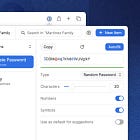The Salt Typhoon hack is causing a lot of anxiety for some government agencies in the US. They are advising their employees and contractors to avoid conducting work related activities using mobile voice calls or text messages on both personal and work-issued devices. Instead, they are encouraging the use of secure messaging apps for communication.
👋 This post contains affiliate links,
and I may earn a commission at no extra cost to you.
To summarize what occurred,
A Chinese hacking group that receives funding from the Chinese government carried out a cyberattack called the Salt Typhoon. It targeted telecommunications companies in the U.S., including Verizon, AT&T, T-Mobile, and Lumen Technologies.
The hackers accessed metadata of individuals, including records of communications, but not the content. They focused on specific government and political targets, such as Donald Trump and Senator J.D. Vance.
Protecting Your Communications
Since individuals like us lack the resources of these agencies, it's crucial to be strategic in safeguarding our communications.
Below, you will find a set of recommendations to enhance your privacy and security:
Use Encrypted Messaging Apps: Choose applications that provide default end-to-end encryption, like Signal or WhatsApp. These apps use high-quality encryption protocols to secure your messages and calls.
Leverage Built-in Encryption: If you're an iPhone user, take advantage of iMessage and FaceTime, which provide end-to-end encryption for communications between Apple users.
Prefer Encrypted Voice and Video Calls: Use apps like Signal or Telegram for audio and video calls, as they offer default end-to-end encryption.
Be Cautious with SMS and MMS: Remember that traditional text messages (SMS) and multimedia messages (MMS) are not encrypted and can be intercepted more easily.
Use a dedicated 2FA app instead of your phone number to receive secure authentication codes.
Use a VPN for Privacy
While encrypted messaging apps offer a good level of security, incorporating a Virtual Private Network (VPN) can significantly increase your online privacy. Here are several advantages of utilizing a VPN for your online privacy and security:
Hide Your IP Address: A VPN masks your real IP address, making it harder for websites and online services to track your location and identity.
Encrypt Your Internet Traffic: VPNs encrypt all your internet traffic, not just your messages, providing an additional layer of security.
Protect Against Eavesdropping: When using public Wi-Fi networks, a VPN can prevent hackers from intercepting your data.
Bypass Censorship: VPNs can help you access content that might be restricted in your region.
Avoid Data Throttling: Some ISPs slow down certain types of internet traffic. A VPN can help you avoid this by masking the nature of your online activities.
How do I protect myself?
Are you curious, what tools do I use daily to protect my privacy online? Here’s my updated list!
Conclusion
I hope this article gives you the context, motivation, and the right tools to take control of your online security and privacy. Take care and stay safe! 👋






